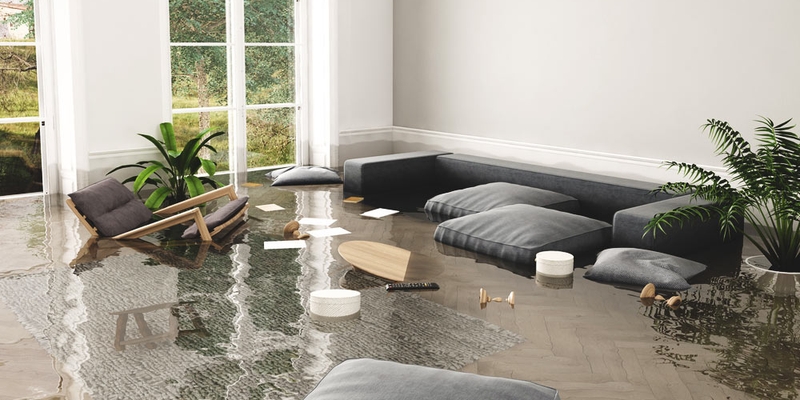
If you are not redirected within 30 seconds, please click here to continue.
Samedi: 10h – 16h HAE

If you are not redirected within 30 seconds, please click here to continue.
If you are not redirected within 30 seconds, please click here to continue.
3 ways to keep your home hazard-free while it’s vacant

With the holiday season in full swing, many people will be travelling to meet family. If you’re going to be away from your home — whether for only a few days or longer, like a month — there are things you can do to keep your home safe and hazard-free while it’s vacant.
The obvious ones might be to make sure you lock all your doors and windows or have a trusted neighbour check in on your vacant home periodically, to make sure everything is okay. But there may be other hazards you haven’t given much thought to. Here are three ways to keep your home safe while you’re away.
Keep your furnace on
Most people turn off their furnace when they leave their home in an effort to save on utility bills.
Michael Schmidt, area director and lead home inspector at HouseMaster Home Inspections, which serves Toronto and the GTA, says that on the contrary, you shouldn’t be turning off your furnace when you’re away from your home.
“If you’re going away for two weeks to a month, you might want to turn down your temperature to 60- or 55-degrees Fahrenheit,” he says, “but not lower than that. You want to keep it at a base temperature because you don’t want to risk your pipes freezing.”
During the winter months, your home’s water pipes expand and contract due to the fluctuating temperatures. And there is a risk of the water pipes bursting, leading to a destructive and dangerous situation for your vacant home.
Most home insurance policies will cover water damage caused by burst pipes, but not in the case of negligence. Forgetting to turn off the furnace while away on vacation counts as negligence, and they will not cover you for the damage.
Another reason to keep the heating system on is that it can be difficult to get it back running upon your return.
Turn off your home’s water supply
As the next step, Schmidt recommends turning off the water supply. In the event of a burst pipe or leak (due to weather, age of equipment, or even faulty plumbing fixtures), the water won’t continue to run.
“If you’re leaving for a weekend or a few days, the risk may be low. But, if there is a leak and you’re away for longer, it can create significant, widespread, and expensive damage to the interiors of the house.”
As the homeowner, it is your responsibility to maintain pipes by making sure they don’t freeze, are secured tightly, and there’s no cracks. It’s worthwhile to check with your insurance company on what is covered and what isn’t.
Generally, most home insurance policies cover accidental damage resulting from unanticipated situations or malfunctions. But they will not cover damages that could’ve been avoided, such as bursts or leaks caused by deteriorating, old, or rusted pipes. Another thing to be aware of is that insurance providers only insure plastic pipes, not lead pipes, which are more likely to leak.
Schmidt also recommends testing the valves well before leaving. “Valves don’t get used that often and if they are used for the first time in many years, they can leak,” he says. “It’s a good idea to test the valve a week in advance of leaving.”
Another solution for vulnerable areas like the laundry room, water heater, or utility room is to install a water alarm. They are available at any home improvement store and have sensors that go off when water reaches the sensor. “If your neighbour hears the alarm go off, they know there is a leak in the house and can help mitigate damage, before it is too late.”
Install and maintain smoke and carbon monoxide detectors
Schmidt notes that many people overlook the installation and maintenance of their smoke and carbon monoxide (CO) detectors.
CO is a colourless, odourless gas that emanates from leaky heating systems, water heaters, or generators that are in closed or confined spaces, like basements and utility rooms. If you’re keeping your furnace running while you’re away, and all windows are secured, there is a risk of CO leakage.
CO is often called the “silent killer” as it is difficult to detect until too late. And its symptoms (shortness of breath and dizziness) can be fatal for children and people with pre-existing respiratory conditions.
In 2014, Ontario made CO detectors mandatory, and failure to comply will result in a $235 fine. Irrespective of whether you are on vacation or not, fire and CO detectors should be installed in every level of your house. Maintain and test them frequently to make sure they are in order and do not block ventilation vents with furniture or objects.
Fortunately, your home insurance policy covers accidental damage caused by fires while you are away, for instance, fires resulting from gas leaks, faulty electrical wiring, or lighting.
Other considerations for when your home is vacant
Schmidt recommends a few other security and energy conservation measures you can take while you’re away from home for an extended period of time.
He recommends unplugging the oven, fridge, and microwave, as appliances will draw a little bit of energy even when they’re not in use. “If there’s an extended time when the property is vacant, you can unplug these appliances for not-so-much a safety issue, but as an energy conservation one.”
Vacant homes are especially vulnerable because burglars know that most people travel during the holidays or winter months. He recommends getting lights with timers that go off at different time of the day, so that it seems like someone is at home.
To avoid unwarranted surprises and ruin an otherwise joyful vacation, take some of these simple measures, like checking vulnerable areas before leaving your house vacant and checking with your home insurance company what coverage is included.
Interested in creating content with RATESDOTCA? Reach us at email@rates.ca.
Don't waste time calling around for home insurance
Use RATESDOTCA to shop around and compare multiple quotes at the same time.
Finding the best home insurance coverage has never been so easy!
Get money-saving tips in your inbox.
Stay on top of personal finance tips from our money experts!










